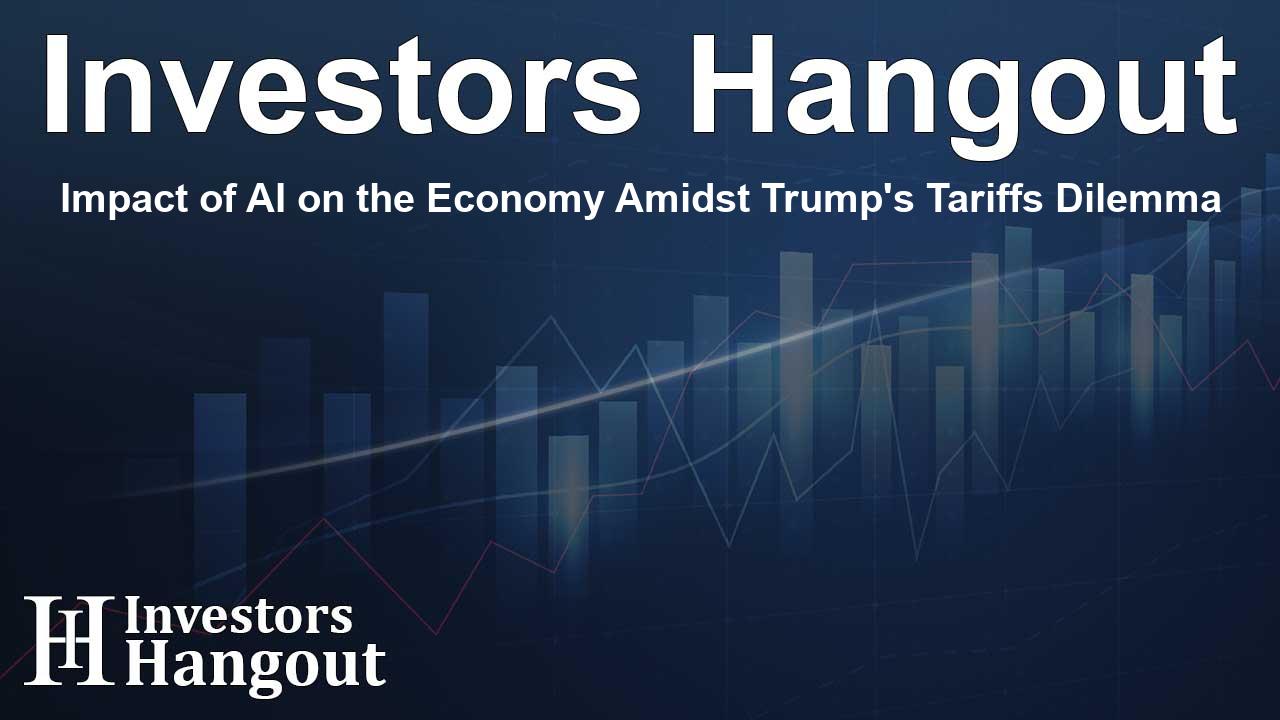Impact of AI on the Economy Amidst Trump's Tariffs Dilemma

Examining the Economic Landscape Amid AI Growth
A notable surge in investment within the realm of artificial intelligence (AI) is concealing severe economic repercussions stemming from tariffs instituted during Donald Trump's administration. This observation has been brought to light by investor Steve Eisman and CNBC's Senior Economics Reporter Steve Liesman.
Understanding the “K-Shaped” Economic Shift
On the podcast "The Real Eisman Playbook," Eisman and Liesman discussed the contrasting dynamics of the economy, emphasizing a "K-shaped" recovery. In this scenario, while the AI sector flourishes, many other industries are silently grappling with hardships that may soon be revealed.
AI's Impact on Economic Perception
Liesman pointed out that the impressive performance of stocks associated with AI has shifted focus away from the pervasive negative impacts of tariffs on diverse sectors. This oversight raises concerns about the overall economic stability, especially for small businesses lacking the capacity to withstand increased costs.
Industries Feeling the Pinch from Tariffs
Liesman voiced specific worries regarding numerous industries adversely affected by trade tariffs, with many witnessing significant declines in their stock values. He reminded listeners that small businesses are particularly vulnerable, as they often lack the resources available to larger corporations, which can better manage or bypass these economic constraints.
The Delay of Tariff Consequences
The full magnitude of the tariffs has yet to be realized, largely because many companies are temporarily absorbing these costs within their profit margins. This tactic is unsustainable over long stretches and indicates that the full wave of economic strain from tariffs is still on the horizon.
Tariff Impact: A Reality Yet to Unfold
Recent analyses suggest that the effective tariff rate currently affecting the economy sits around 10%, even though the actual imposed rate approaches 18%. Such a disparity points toward an impending economic shock that could considerably affect various sectors.
Liesman warned, "Thus far, we’ve only experienced half of what the tariffs will ultimately impose on consumers and manufacturers. The pressure brewing beneath the surface creates an unsettling scenario, particularly for those reliant on imported components. This stress remains largely unnoticed as the AI-driven market continues its rise."
Market Reactions and Observations
In the latest market updates, the S&P 500 index recorded a slight decline of 0.16% at 6,644.31, while the Nasdaq 100 index fell by 0.69% to stand at 24,579.32. Meanwhile, the Dow Jones experienced a modest gain of 0.44%, reaching a total of 46,270.46.
Interestingly, the SPDR S&P 500 ETF Trust (NYSE: SPY) and the Invesco QQQ Trust ETF (NASDAQ: QQQ) made gains during premarket sessions on Wednesday, with SPY up by 0.62% at $666.31 and QQQ advancing by 0.84% to $603.01. On Wednesday, futures for major indices such as the S&P 500, Dow Jones, and Nasdaq were also trading positively.
Conclusion
As the allure of AI continues to captivate investors, the subtle yet insidious effects of tariffs loom overhead, promising to unleash greater challenges for the economy in the future. The ongoing recovery must account for these dynamics to cultivate a balanced economic environment.
Frequently Asked Questions
What role does AI investment play in the economy?
AI investment is driving growth in certain sectors, masking the economic damage caused by tariffs imposed by the previous administration.
How do tariffs affect small businesses?
Small businesses struggle more than large corporations under tariffs, as they lack resources to absorb extra costs.
Is the tariff impact fully felt in the economy?
No, many analysts indicate that most of the economic repercussions from tariffs have yet to fully materialize.
What are the warning signs of economic strain from tariffs?
Indicators include rising costs for manufacturers reliant on imports and declines in stock values across various affected sectors.
How are market indices reacting to current economic conditions?
The indices are showing mixed reactions, with some gaining and others reflecting losses amid ongoing uncertainties and sector-specific challenges.
About The Author
Contact Hannah Lewis privately here. Or send an email with ATTN: Hannah Lewis as the subject to contact@investorshangout.com.
About Investors Hangout
Investors Hangout is a leading online stock forum for financial discussion and learning, offering a wide range of free tools and resources. It draws in traders of all levels, who exchange market knowledge, investigate trading tactics, and keep an eye on industry developments in real time. Featuring financial articles, stock message boards, quotes, charts, company profiles, and live news updates. Through cooperative learning and a wealth of informational resources, it helps users from novices creating their first portfolios to experts honing their techniques. Join Investors Hangout today: https://investorshangout.com/
The content of this article is based on factual, publicly available information and does not represent legal, financial, or investment advice. Investors Hangout does not offer financial advice, and the author is not a licensed financial advisor. Consult a qualified advisor before making any financial or investment decisions based on this article. This article should not be considered advice to purchase, sell, or hold any securities or other investments. If any of the material provided here is inaccurate, please contact us for corrections.
